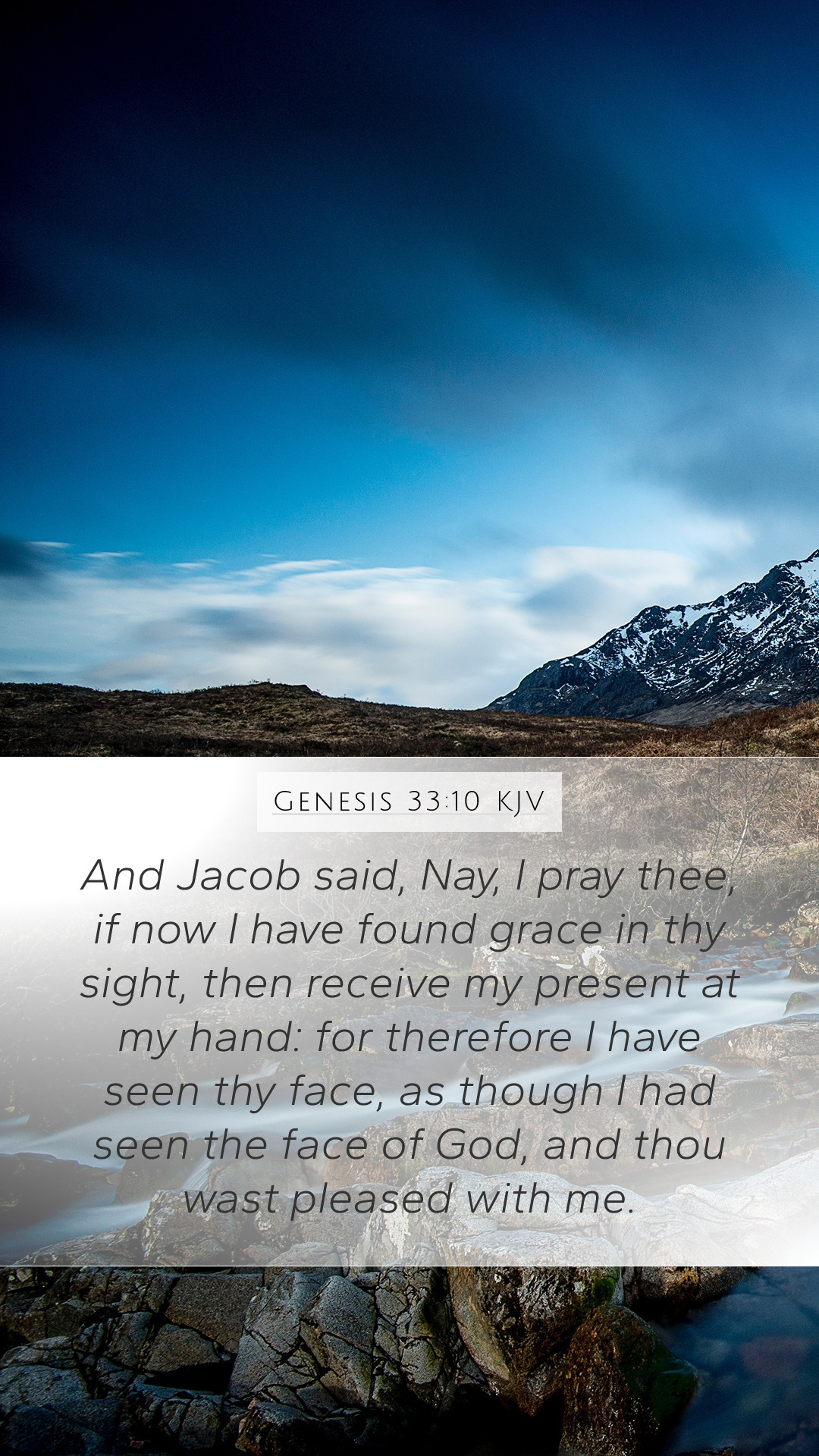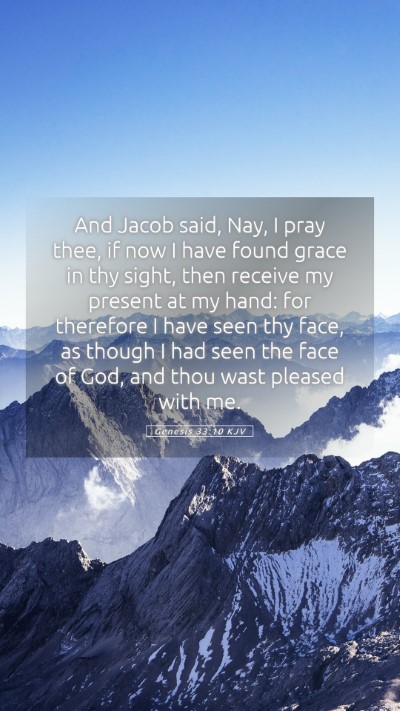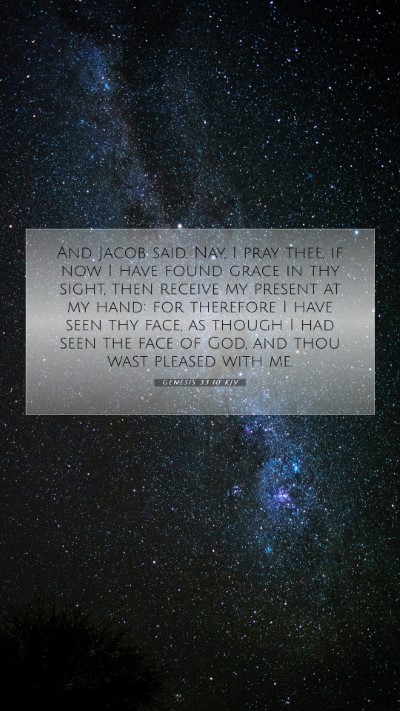Understanding Genesis 33:10
Verse: Genesis 33:10 - "And Jacob said, 'No, please! If I have now found favor in your eyes, then receive my present from my hand; for I have seen your face as though I had seen the face of God, and you were pleased with me.'"
Bible Verse Meanings
This verse occurs in the narrative of Jacob's reunion with his brother Esau after many years. The profound emotional weight of this encounter is captured in Jacob's words, as they reflect themes of reconciliation, gratitude, and divine favor.
Bible Verse Interpretations
- Matthew Henry's Commentary: Henry highlights the significance of Jacob's reference to seeing Esau's face as seeing the face of God. It indicates the joy and relief Jacob felt at Esau's acceptance. This can be interpreted as a manifestation of God's grace, suggesting that reconciliation among brothers can reflect the deeper reconciliation with God.
- Albert Barnes' Notes: Barnes discusses the importance of Jacob's gift to Esau, explaining it as a means to express his sincerity and goodwill. The gift symbolizes the restoration of their relationship and Jacob’s desire to make amends for the past wrongs, reinforcing the theme of forgiveness that is prevalent in biblical narrative.
- Adam Clarke's Commentary: Clarke provides insight into the cultural context of offerings and gifts in ancient times. He notes that such gestures were a common practice to signify peace and goodwill, enhancing the notion of Jacob seeking harmony with his brother.
Bible Verse Understanding
The essence of Genesis 33:10 is rooted in the dynamics of familial relationships and forgiveness. The verse teaches valuable lessons on humility, the importance of reconciliation, and recognizing the divine in human interactions.
Bible Verse Explanations
Jacob's plea to receive his present signifies his acknowledgment of his own past mistakes towards Esau, illustrating a transformation of character that comes with genuine contrition. It serves as a reminder of the power of forgiveness and the healing of broken relationships.
In-Depth Bible Verse Analysis
This verse can be analyzed through various lenses:
- Theological Lens: Reflects the idea of grace and forgiveness central to the Christian faith, where one's wrongdoings can be overshadowed by sincere repentance and reparative actions.
- Historical Context: Understanding the familial rivalry between Jacob and Esau, as well as the cultural significance of gift-giving in ancient Near Eastern customs, enriches the reader's understanding of the text.
- Literary Context: The narrative structure of Jacob's journey towards reconciliation highlights his character development, making this moment pivotal for the overarching themes of the Jacob-Esau story.
Application of Bible Verses to Daily Life
This verse invites readers to reflect on their own relationships. It encourages individuals to seek reconciliation with those they have wronged, demonstrating that humility and sincerity are vital for healing broken bonds. It serves as a model for approaching others with grace and love.
Bible Study Insights
For bible study groups, Genesis 33:10 provides a rich ground for discussion on forgiveness, the importance of addressing past grievances, and the transformative power of faith in overcoming familial strife. A group can explore the implications of Jacob's journey and the role of divine intervention in human relationships.
Cross References
- Matthew 5:23-24 - The importance of reconciling with others before offering gifts to God.
- James 5:16 - The call to confess sins and pray for one another to bring healing.
- Ephesians 4:32 - A reminder to be kind and compassionate to one another, forgiving each other just as God forgave you.
Conclusion
Genesis 33:10 embodies essential biblical themes of forgiveness, reconciliation, and the graciousness of human interactions. As we delve into bible verse meanings, interpretations, and understanding Scripture, this passage serves as a profound reminder of the grace bestowed upon us and the grace we are called to extend to others.


